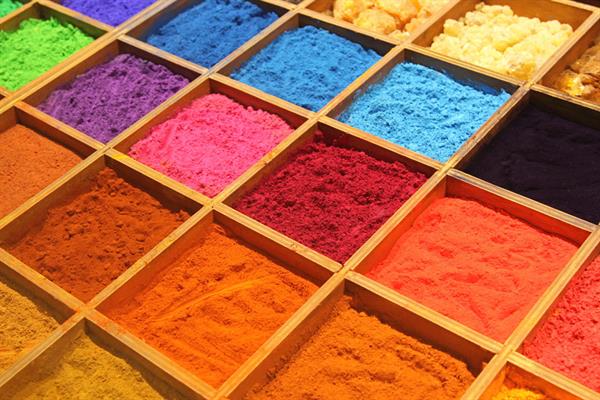In this article, reactive dyes exporters India will talk about the major differences between reactive dye and disperse dye used for fabric. Let’s read them in detail.
Reactive dyes are most popular products and widely used by wet processing industry of cotton across the world as these are water soluble dyes. These dyes are able to create covalent bond with the fibers. You can take a certain amount of dye that gets hydrolyzed during dyeing process which is performed under alkaline condition (pH = 11.5). Huge electrolyte is required for dyeing using reactive dyes.

Dyes come in reactive category are:
- Procion MX
- Lanaset / Sabraset
- Dylon Cold
- Cibacron F
- Remazol
- Prochem Sabracron F
- Vinyl Sulfone
Major features of reactive dyes:
- Water soluble
- Create covalent bonds with the fiber
- Certain amount of dye is hydrolyzed during the process
- More electrolyte required for dyeing process
- Fastness properties are good
- Easy to apply on cellulosic and protein fibers (wools, silk)
- Cost effective
- Available in all shades and colors
Disperse dyes are used for polyester fabric. Manufacturers of polyester fabrics can use disperse dyes with several techniques for:
- Polyester
- Nylon
- Vilene
- Cellulose acetate
- PVC
- Synthetic velvet.
- Even plastic industry is also using disperse dyes to color their products.
Disperse dyes are the only water-insoluble dyes that are used for dyeing polyester and acetate fibers. The molecules of disperse dye are the smallest in size among all dyes. These dyes are horrible and gross. You use them for dyeing polyester and acrylic and similar plastics. However, there are ways to color polyester without applying the noxious chemicals and super heat, yet these are not pleasant solutions.
Disperse dyes are among those organic substances that are free of ionizing group. Major properties of disperse dyes are:
- Non soluble in nature
- Insoluble in water
- There is a need of dispersing agent for dyeing process
- Fastness properties is good to excellent
- Use of disperse dyes is done under acidic condition
- Economical
- Molecular size is smaller
Many manufacturing companies are making reactive dyes. To source reactive dyes, you can contact reactive dyes exporters India. For more details on dyes and their different properties, ask experts.
Share your experience and send queries related to disperse and reactive dyes to the exporters today.
